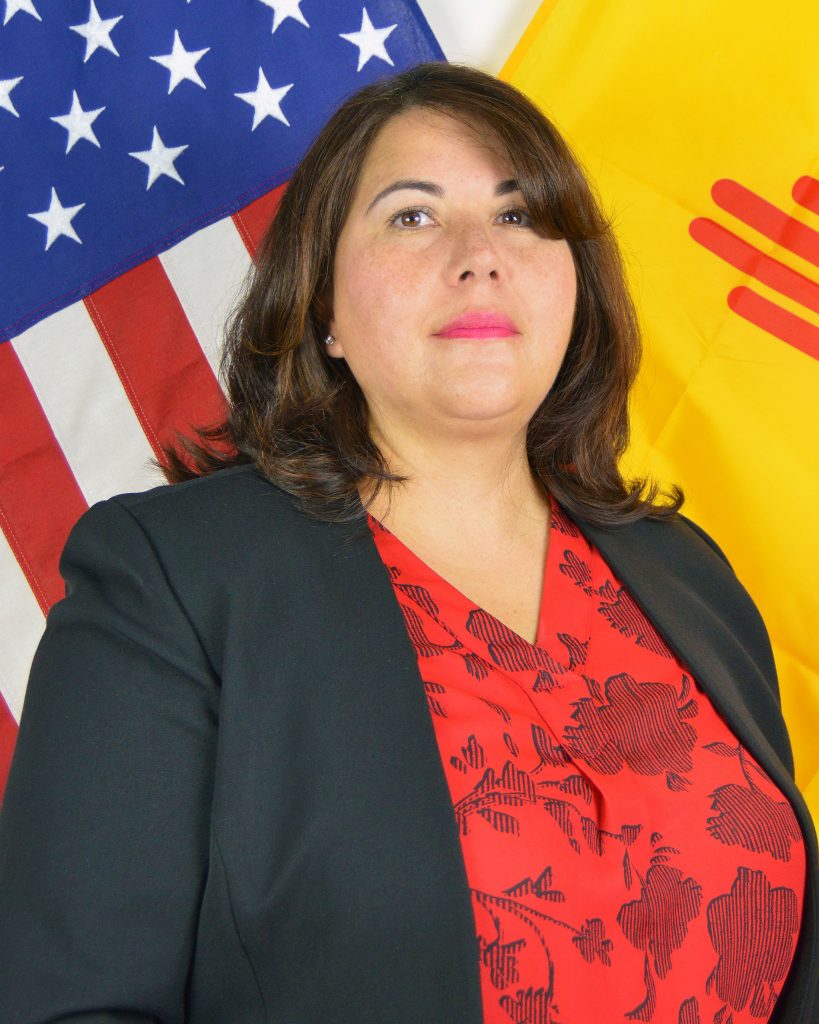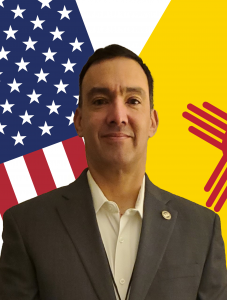Parole Board
The Parole Board is an administratively attached independent board
The New Mexico Parole Board is an independent agency that reports to the governor. The agency has statutory authority to grant, deny or revoke parole (31-21-25 NMSA 1978). The agency also investigates and reports cases of executive clemency at the request of the governor (31-21-17 NMSA 1978). The agency notifies victims through the district attorneys victims advocate of scheduled parole hearings for offenders and meets with them at their request. Pardoning authority is vested solely and exclusively in the Governor as stated in Article V, Section 6, of the Constitution of New Mexico and if requested by the Governor, the Board may investigate such cases (31-21-17 NMSA 1978). All applicants must obtain an application from, and apply directly to the Governor of New Mexico.
The New Mexico Parole Board consists of 15 members appointed by the governor with the consent of the state Senate (31-21-23 NMSA 1978). An executive director appointed by the governor heads the agency. A deputy director and four dedicated and professional individuals assist the executive director in accomplishing the mission of the agency.
The mission of the New Mexico Parole Board is to provide for the public safety, to assist in the probability of adult offenders becoming law-abiding citizens and to assist the New Mexico Corrections Department in reducing recidivism. The agency accomplishes its mission through a balance of parole conditions, supervised enforcement, program services and interaction with the judiciary by working closely with the Corrections Department.
The New Mexico Parole Board is responsible for conducting timely parole hearings and parole revocation hearings for adult offenders. An average of 300 hearings are held each month. These hearings are conducted weekly at several correctional facilities throughout the state by parole board members. The goals of the agency are to assist the Corrections Department in its efforts to reduce recidivism and provide outreach to advocacy groups and citizens on the role and responsibilities of the New Mexico Parole Board. The agency seeks assistance from groups and individuals to further the goals of the New Mexico Parole Board.
Roberta Cohen
Director
Abram Anaya
Board Chairman
New Mexico Parole Board
4337 State Road 14
Santa Fe, New Mexico 87508
Phone: (505) 827-8853
Email: nmapb.paroleboard@apb.nm.gov
Records Information
Records Manager
NM Parole Board
4337 State Road 14
Santa Fe, NM 87508
Phone: (505) 827-8853
NMAPB Quarterly Public Meetings
Open Meeting Act
Rulemaking
Corrections’ Victim Services
Victim Services Coordinator
P.O. Box 27116
Santa Fe NM 87502-0116
Phone: (877) VICTIM-4 ( (877) 842-8464)
In Santa Fe: (505) 827-8848
Email: CDVictimSrvcs@cd.nm.gov
FAQs
What is parole in New Mexico?
Parole is a legal requirement, ordered by the judge at an offender’s sentencing, and follows a term of incarceration in the Department of Corrections. Typically, offenders reaching the end of a prison term will appear before a panel of 2-3 parole board members to have conditions of parole set. Once released from prison, the offender is monitored by a Parole Officer from the Department of Corrections. Parole is usually for a statutory period of 1 or 2 years, although there are exceptions. During that time, the offender must comply with the conditions set. If conditions are not followed, the board will take the action required and, if necessary, return the offender to prison for the remainder of the parole term.
Can the parole board deny parole to an inmate?
No. Since 1979, the law requires that once the sentence has been served, an inmate must be placed on parole. Exceptions are inmates whose sentences were handed down prior to 1979, and inmates who have been convicted since 1980 of Murder in the First Degree; in those cases, the parole board has the discretion to grant or deny parole. An inmate on parole will not be released until an adequate parole plan is arranged.
What is the purpose of parole?
Parole is intended to provide for public safety and to assist incarcerated persons in their return to productive society.
Can anyone attend a parole board hearing?
No. In New Mexico, parole board hearings are considered “closed”, with a statutory exception allowing victims (as defined in the statute) to participate.
I am a victim of a crime. How do I find out about my offender's parole board hearing?
The District Attorney’s Office where the crime was prosecuted, must notify victims when hearings for their offenders have been scheduled. It is very important, therefore, for victims to provide the DA victim advocates with updated contact information, if they would like to be notified.
How can I, as a victim, participate?
The letter you receive from the DA Victim Advocate will provide you with information to help you work with the Parole Board through Corrections’ Victim Services. The Board is very flexible in working with victims and committed to supporting their rights.


